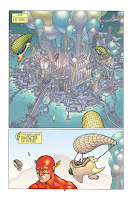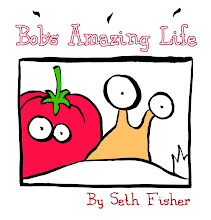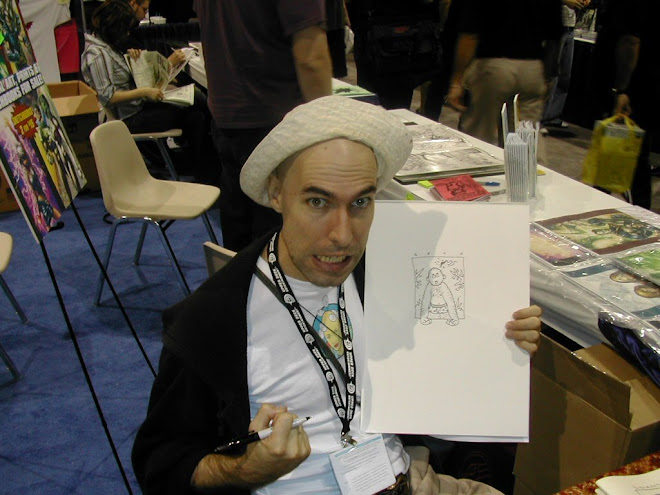 What strikes me about this page is the structure of the building where all this action takes place. I am not sure that we are ever shown a long shot of this building, where we could see how all the parts fit together.
What strikes me about this page is the structure of the building where all this action takes place. I am not sure that we are ever shown a long shot of this building, where we could see how all the parts fit together. Though this image shows the entire city, it is not at all clear exactly in what part of the city the action takes place.
Though this image shows the entire city, it is not at all clear exactly in what part of the city the action takes place.But in the first and third panels of the upper page--22--the front door(?) of the building, with its tiled overhang, is visible. Seeing it makes you feel that, whether we can see it or not, Seth knew exactly what the whole place looked like.
When they put together the settings for Myst 3: Exile, the designers needed precise specs for each of the "ages" where players go, so the journey from one place to another would make sense. Seth told me that some designers actually built models of their place, so they could picture how to get from one area to another. Seth liked to do that sort of thing in his mind. He may have made a map, but if he did I never saw it. I kind of doubt it. It pleased him to challenge his brain to visualize places in 3-D. When I was trying to play the game, and I was stuck on the first level (designed by Seth), he gave me a hint: "Make a map." I did, and that helped me more than anything to solve it.
When they put together the settings for Myst 3: Exile, the designers needed precise specs for each of the "ages" where players go, so the journey from one place to another would make sense. Seth told me that some designers actually built models of their place, so they could picture how to get from one area to another. Seth liked to do that sort of thing in his mind. He may have made a map, but if he did I never saw it. I kind of doubt it. It pleased him to challenge his brain to visualize places in 3-D. When I was trying to play the game, and I was stuck on the first level (designed by Seth), he gave me a hint: "Make a map." I did, and that helped me more than anything to solve it.
In all his work Seth tried to make his scenes look as though they went beyond the edges of the picture frame, but his work on Myst 3 may have increased his prowess in picturing the entire stage set, whether the reader ever sees it or not.





No comments:
Post a Comment